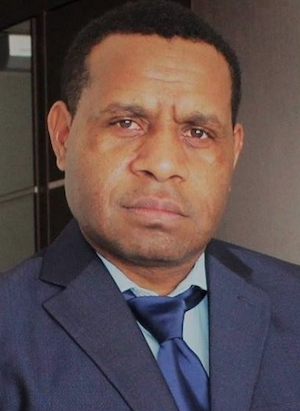By Don Wiseman, RNZ Pacific senior journalist
Academic Andrew Anton Mako says the Papua New Guinea’s systemic dysfunction was plain to see in the rioting and looting throughout the country’s main cities two weeks ago.
That rioting was sparked by a protest by police after unannounced deductions from their wages.
It led to a riot causing the deaths of more than 20 people, widespread looting and hundreds of millions of dollars damage to businesses.

The government, which declared a two-week long state of emergency, put the wage deductions down to a glitch in the system.
Mako, who is a visiting lecturer and project coordinator for the ANU-UPNG Partnership with the Australian National University’s Development Policy Centre, said that the rioting would not have happened if the system was working properly.
“That information could have been transmitted through the system so that not only the police officers, but other public servants would have been assured that there was a glitch in the system, and then they would return the money in the next pay,” he said.
Symptom of major problems
“I think that information could have been made available to the officers quickly and the protests should not have happened.”
He said it was not an isolated event but a symptom of major problems facing the country.
“The government and the policymakers really need to take a comprehensive approach in addressing that,” Mako said.
He said that in the administration there were entire areas where little development or reform had happened in a generation.
The last attempt to look at the government machinery was more than 20 years, under Sir Mekere Morauta, but since then “there hasn’t been any sort of reforms to improve governance, improve public safety, efficiency, and all that.”
Mako believes if the work of Sir Mekere had been continued the country would not be facing the problems it is at the moment.
What reforms are needed
Mako said the government needs to know it faces major issues that cannot be resolved quickly — they will need to think in terms of years before reforms can be bedded in.
“It’s not going to be easy, they have to really work on it for a number of years. They will have to come up with a reform agenda work on it for the next four or five years.”
Up to now, Mako said, politicians have just dealt with the symptoms, rather than addressing the underlying issues, such as unemployment.
He sees the high crime rate as being closely linked to the lack of work opportunities, along with high inflation and the failure of wages to keep pace.
“The focus has to be on the sectors that create jobs. So over the last few years, over the last decade or so, a lot of focus has really been on the resources sector, the mineral, petroleum and gas sector.
“Those sectors are really called enclave sectors and they have really limited linkage with the broader sectors of the economy,” Mako said.
“So the mineral sectors do not create a lot of jobs. A lot of the jobs [there] are done by either machines or highly skilled workers. So it is the sectors like agriculture, like fisheries, like tourism, forestry, those are the sectors really, really create jobs.”
Mako added the government should be focussing on investing in, and developing policies, in these traditional sectors, enabling many of the unemployed, especially the young, to find work.
This article is republished under a community partnership agreement with RNZ.
Article by AsiaPacificReport.nz







